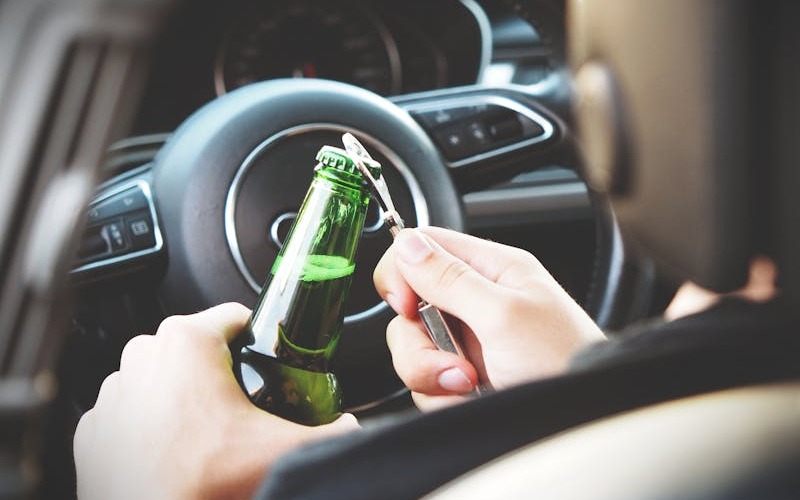Can You Challenge a Faulty Breathalyzer in a DWI Case in Louisiana?
If you were arrested for DWI in Louisiana and the breathalyzer test didn’t seem right, there’s a chance the results can be challenged. We’ve worked with clients in similar situations—where the test was rushed, the steps weren’t clearly followed, or the device may not have been properly maintained.
In Louisiana, officers have to follow specific procedures when they give a breath test. If those procedures weren’t followed, the test results might not be reliable, and that could make a real difference in your case.
Breathalyzer Tests in Louisiana DWI Cases
If you’re facing a DWI charge in Louisiana, chances are a breathalyzer test played a big part in the arrest. Before thinking about ways to challenge the results, it’s important to understand how these tests are supposed to work.
In Louisiana, a BAC of 0.08% or higher is considered legally intoxicated. To prove this, officers often use chemical testing, especially breath tests. But while these devices are common, they’re not always reliable, and mistakes happen more often than you might think.
What Should Happen During a Breath Test
There are clear rules under Louisiana law for how a breath test must be done. If those steps aren’t followed, the test results could be flawed or even tossed out. Here’s what should happen:
- You should be observed for 15 minutes before the test—during that time, no eating, drinking, smoking, burping, or vomiting. Anything like that can mess with the results.
- The device needs to be calibrated regularly. And yes, there should be a record showing when that was last done.
- The officer giving the test must be certified to use the equipment.
- At least two samples should be taken, with a couple of minutes between them.
- Only approved devices can be used for evidence in Louisiana courts.
If any of these steps were skipped, it may be possible to challenge the results. We go through the details carefully in every DWI case to spot errors like these. One small mistake during the breath test could be enough to weaken the case—or even have the evidence thrown out.
Common Breathalyzer Administration Errors That Can Help Your Case
Over the years, we’ve seen the same breathalyzer-related mistakes come up again and again in DWI cases across Shreveport and North Louisiana. These errors might seem small on the surface, but they can open the door to a strong defense when handled the right way.
Not Following the 15-Minute Observation Period
Before giving a breath test, officers are supposed to observe you for at least 15 minutes. This isn’t just a box to check—it matters. If you burp, have certain medical conditions like acid reflux, or recently had alcohol in your mouth, it can affect the test results and lead to a higher reading.
We’ve seen cases where the officer said they followed the observation rule, but video footage showed otherwise. That kind of mistake can seriously weaken the prosecution’s argument.
Calibration and Maintenance Issues
Breathalyzer devices have to be properly maintained and regularly calibrated to be considered reliable. In Louisiana, there should be records showing this. When we review those logs, we’ve sometimes found:
- Missed or overdue calibration checks
- Devices that failed a test, then somehow passed the next one right after
- Incomplete maintenance records
- Use of expired calibration solutions
Any one of these problems can cast doubt on the accuracy of the breathalyzer test—and that can give us a way to push back on the evidence.
Problems with Officer Certification
Not every officer is certified to give a breath test in Louisiana. They need specific training and an up-to-date certification. In some cases, we’ve found:
- The officer’s certification had expired
- They didn’t follow the procedures they were trained to use
- The state couldn’t produce proof that the officer was qualified
When that happens, we can question whether the test should be trusted at all.
Medical or Environmental Interference
There are other factors that can affect breath test results, even if the officer follows the rules. For example:
- Medical conditions like GERD, acid reflux, or diabetes
- Working around strong chemicals—paint, cleaning products, industrial solvents
- Electronic interference from nearby devices
- Extreme temperatures affecting the machine
If you have a health issue or job that might impact the test, it’s worth looking into. We dig into all of this to find any angle that could help your case.
Louisiana’s Implied Consent Law and Its Impact on Your Case
By holding a Louisiana driver’s license, you’ve agreed—whether you realize it or not—to submit to chemical testing if you’re ever arrested for DWI. This is known as implied consent. If you refuse a breath test, it typically leads to an automatic license suspension—usually one year for a first offense.
But that doesn’t mean officers can do whatever they want. The law puts clear limits on how and when they can request a breath test. They must:
- Have valid probable cause for the traffic stop
- Show reasonable suspicion that you’re driving under the influence
- Explain your rights and the consequences of refusing the test
- Follow proper testing procedures
When these steps aren’t followed, both the breathalyzer test results and the penalties tied to a refusal can often be challenged. We review these details carefully in every case, because even one misstep could impact the outcome.
Field Sobriety Test Errors That Could Affect Your Arrest
Most breath tests come after an officer conducts field sobriety tests—exercises like the walk-and-turn, one-leg stand, or following an object with your eyes. These might seem simple, but there are specific rules about how and where they should be done.
We’ve handled cases where these tests were performed on uneven pavement, in bad lighting, or with confusing instructions. When that happens, it can cast doubt on the officer’s observations and may weaken the probable cause for the arrest, which could make any breath test that followed less reliable in court.
How to Challenge Breathalyzer Results in Louisiana Courts
If the breathalyzer test in your DWI case wasn’t handled properly, there are several ways we can challenge that evidence in court.
Filing a Motion to Suppress
One common approach is filing a motion to suppress, which asks the judge to throw out evidence that was improperly obtained. In the context of a breath test, this might apply if:
- The officer lacked probable cause for the traffic stop
- The breath test wasn’t administered correctly
- The device wasn’t properly calibrated or maintained
- There are gaps in the chain of custody
If key evidence gets excluded, the state may not have enough to move forward with the case.
Bringing in Expert Testimony
In some cases, we work with expert witnesses who can break down the science and procedures behind breath testing. These experts might include:
- Forensic toxicologists who understand how blood alcohol concentration is measured
- Former officers trained in breathalyzer procedures
- Medical professionals who can explain how certain medical conditions might affect results
Their insights can help us show that the test results aren’t as reliable as the prosecution claims.
Challenging License Suspension at an Administrative Hearing
Apart from the criminal side, refusing or failing a breath test can trigger a license suspension. But you have the right to fight that through an administrative hearing.
This is a separate process where we can raise concerns about how the test was handled, and possibly keep your driver’s license while the court case plays out.
What Can Happen if We Successfully Challenge the Breath Test
If we’re able to show that your breath test was done improperly, there are a few ways that can benefit your case. Some possible outcomes include:
- Getting the DWI charge dropped completely
- Reducing the charge to something less serious, like reckless driving
- Keeping the breath test results out of court, which weakens the prosecution’s case
- Creating leverage to negotiate a better plea deal
- Protecting your driving privileges
Even if the case isn’t dismissed outright, raising valid concerns about how the breathalyzer test was handled can still lead to a better result—often with fewer penalties.
Why Fighting a DWI Charge Matters in Louisiana
A DWI conviction in Louisiana comes with more than just a fine or a night in jail. For a first offense, you’re looking at:
- Fines between $300 and $1,000
- Possible jail time (10 days to 6 months), though often suspended
- License suspension
- Required education or substance abuse programs
If your BAC was especially high—0.15% or above—the penalties are even tougher. And if this isn’t your first offense, everything gets more serious.
On top of the legal consequences, a conviction can lead to higher insurance costs, trouble at work, and a permanent criminal record. That’s why we take every opportunity to dig into the details—especially around breath testing—to build the strongest possible defense.
Why It Matters to Have an Experienced DWI Attorney Reviewing Your Breath Test
Challenging how a breathalyzer test was done isn’t something just any lawyer can handle. It takes a solid understanding of both Louisiana DWI law and the science behind breath testing.
At the Law Office of Heather C. Ford, we’ve helped many clients fight DWI charges by carefully digging into how their tests were handled—and finding the problems that others might miss.
A strong defense often includes steps like:
- Getting maintenance and calibration records for the testing device
- Talking to anyone who witnessed the test being done
- Bringing in expert witnesses who can explain where things went wrong
- Filing motions to block unreliable test results
- Negotiating with prosecutors when that’s in your best interest
- And when needed, being fully prepared to take your case to trial
Each step takes experience—and knowing when and how to act can make all the difference.
Taking Action After a DWI Arrest Involving Questionable Breath Testing
If you think your breath test wasn’t handled correctly, don’t wait to get help. DWI cases move fast, and some deadlines come up quick:
- You only have 15 days from the arrest to request a hearing about your license suspension
- The longer you wait, the harder it gets to gather solid evidence
- Witnesses may forget details, and some records can be lost
The sooner you get an experienced DWI defense attorney involved, the more options we have to push back and protect your rights.
Our team has handled breath test challenges all across North Louisiana, and we know how to spot the issues that can help your case. If you’re facing a DWI and questioning how the test was done, reach out. We’re here to walk you through your options—and fight for the best outcome possible.
Want higher insurance rates and more points?
Of course not.
- Sign up 24 hours a day

- Keep your insurance low

- Skip going to court











